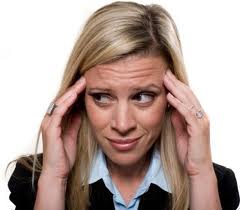Uncertainty, Risk, and VUCA

I’m just not certain.
Over time, I expect to write about all four elements of a VUCA environment – Volatility, Uncertainty, Complexity, and Ambiguity. Let’s start with uncertainty, which seems somewhat different from the other elements. With volatility, complexity, and ambiguity, we know something. With uncertainty, we don’t know something.
Uncertainty is often compared to risk. I wondered why uncertainty was included in VUCA while risk was not. After all, the two concepts are similar. But, as I’ve learned, risk is about knowledge while uncertainty is about lack of knowledge. As Michael Mauboussin explains, with risk we don’t know what’s going to happen but we do know the distribution of possibilities. Uncertainty is similar in that we don’t know what will happen. The difference is that we don’t even know what could happen.
Mauboussin uses games of chance to illustrate his point. In roulette, for instance, we don’t know which number will turn up but we can gauge the probability of each number. The same is true for most card games, dice games, etc. With uncertainty, however, we have little or no idea what the outcomes might be. We may assume that we know the range of possible outcomes but we really don’t.
As Nate Silver points out, you can put a price on risk but not on uncertainty. We know the odds of drawing to an inside straight and we can use that knowledge to bet to our advantage. We can’t bet effectively on uncertainty because we don’t know what the outcomes are or how they are distributed. Silver concludes, “Risk greases the wheels of a free-market economy; uncertainty grinds them to a halt.”
Even the Federal Reserve has weighed in on this question. An article published by the Federal Reserve Bank of Saint Louis explains:
“Although risk is quantifiable, uncertainty is not. Rather, uncertainty arises from imperfect knowledge about the way the world behaves. Most importantly, uncertainty relates to the questions of how to deal with the unprecedented, and whether the world will behave tomorrow in the way as it behaved in the past.”
Understanding the difference between risk and uncertainty can help us analyze contentious issues. The Iranian nuclear treaty may provide a good example. American political leaders who support the treaty view Iran as a rational actor. The country doesn’t want to commit suicide by initiating a nuclear war. The possible outcomes are known and we can judge their probability.
Leaders who oppose the treaty see Iran as irrational – much like North Korea. They see Iran as a messianic and extremist religious state that might well be willing to risk suicide to provoke Armageddon. Outcomes are not only unpredictable; they are unknowable. No treaty could possibly account for all possible outcomes.
Placing the Iranian treaty in the risk/uncertainty framework gives us additional tools to analyze the situation and refine our strategies. It gives us tips on what to look for. The fundamental question we’re trying to answer is simple: Is Iran a rational actor or not? I think we could develop a framework that would help us answer this question rationally rather than emotionally.
The Iranian treaty is, of course, a global issue. What if you encounter uncertainty in your personal or professional life? How can you assess the situation and improve your chances? More on that tomorrow.